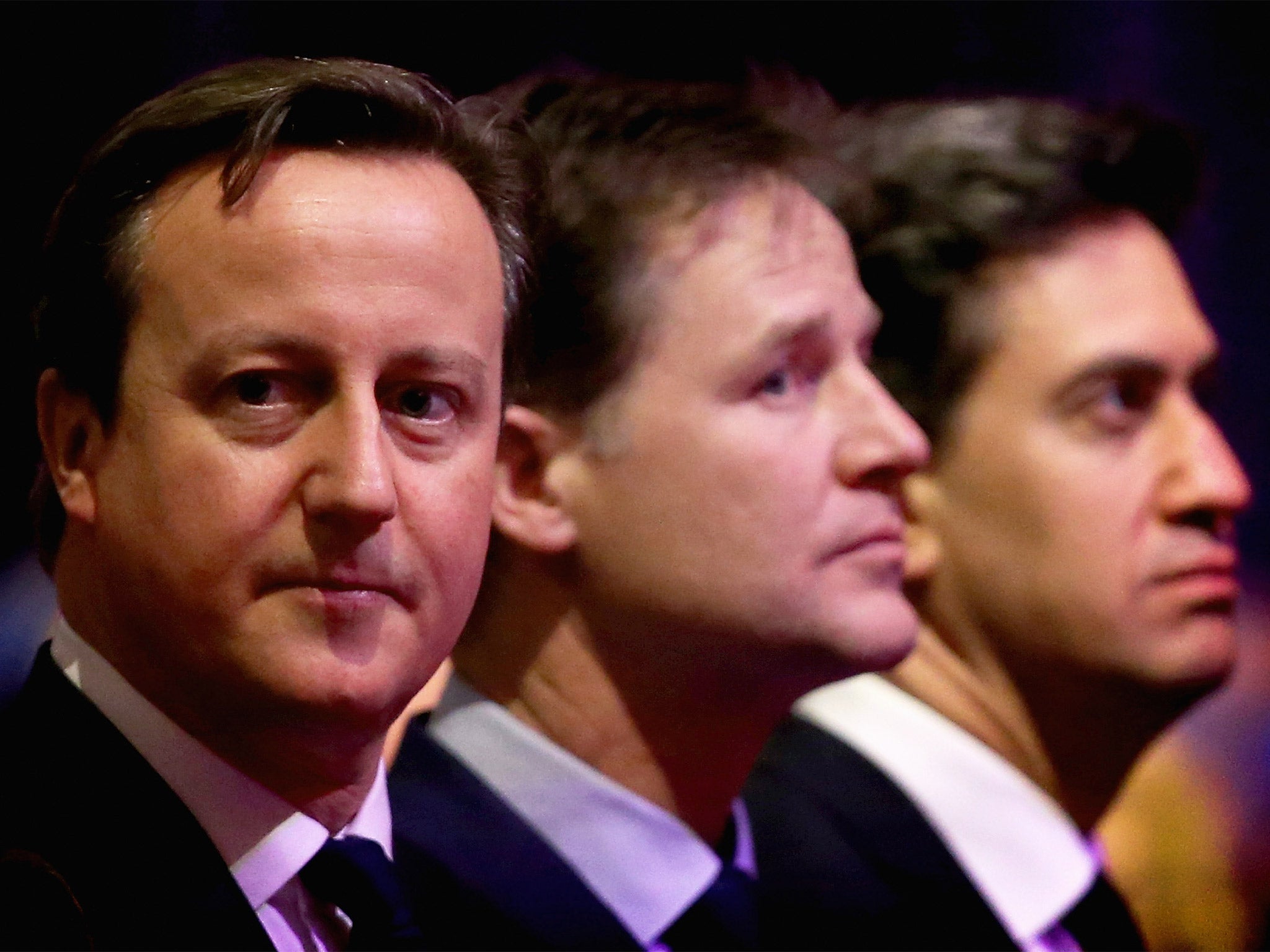Nobody's above dirty tricks - but do they help?
The election is so close that the parties will throw anything at each other

Your support helps us to tell the story
From reproductive rights to climate change to Big Tech, The Independent is on the ground when the story is developing. Whether it's investigating the financials of Elon Musk's pro-Trump PAC or producing our latest documentary, 'The A Word', which shines a light on the American women fighting for reproductive rights, we know how important it is to parse out the facts from the messaging.
At such a critical moment in US history, we need reporters on the ground. Your donation allows us to keep sending journalists to speak to both sides of the story.
The Independent is trusted by Americans across the entire political spectrum. And unlike many other quality news outlets, we choose not to lock Americans out of our reporting and analysis with paywalls. We believe quality journalism should be available to everyone, paid for by those who can afford it.
Your support makes all the difference.All's fair in love, war and general elections - everyone knows that. Even Barack Obama accepted long before he was elected president that “politics is a contact sport”. If you want to go into politics, you should be ready for a rough ride from your opponents because not everyone thinks you're as great as you do.
Yet this week Labour suggested they didn't think that at all. The party's election strategist Lucy Powell accused the Tories of “running a campaign of fears and smears” and warned that David Cameron's party was going to “up personal attacks on Ed Miliband”. She was particularly unimpressed with posters the Conservatives had published photoshopping Ed Miliband into a cosy embrace with Gerry Adams and Alex Salmond.
It's generous of Powell to warn us of the dirty tricks we might come across in a general election, given that Labour isn't exactly abstemious when it comes to campaigns of fears and smears, either. For the big parties, dirty tricks politics is as much part of the arsenal as the war chests of money for campaigning, billboard posters and broadcasts.
Both Labour and the Tories have well-run attack units. The Labour political research unit has four people in it, run by Joe Carberry, and Torsten Henricson-Bell's policy and research taskforce hunts for dodgy policies, silly quotes and other moments of weakness in Labour's opponents.
The Conservative research department is led by Alex Dawson, and finds ways to attack and rebut Labour. Former Cameron speechwriter Nick Hargrave runs a political team who monitor the remarks of Labourites, looking for policies where they've U-turned, awkward quotes from party candidates... When these attack units find something of note, the press teams approach newspapers to offer their discoveries as a story.
This aspect of campaigning is so well-practised that the parties even allow the opposition's spinners behind enemy lines at their autumn conferences. At the last Tory conference, one Labour tracker struck gold. Sitting in a fringe meeting where Lord Freud was speaking, the researcher recorded the Welfare Minister saying that some disabled people are “not worth” the minimum wage. The party unleashed the clip on David Cameron at Prime Minister's Questions.
The Tories weren't quite so lucky this year. One of their “agents”, Rich Holden, was exposed in a fringe meeting. It was late in the day and the red wine was flowing. After a particularly awkward question, one speaker - Lord Wood, Ed Miliband's close adviser - called for a refill. Holden, who had been lurking anonymously at the back, politely came forward with a bottle, forgetting in his readiness to help that he was supposed to be secretly snooping on Labourites, not serving as a butler.
But is hunting your opponents like this really good for politics? John Woodcock is a Labour MP these days, but he used to be a tracker. In his day, the job was mysteriously called “magic bean”, and Woodcock got lucky in 2005 when he recorded Conservative deputy chairman Howard Flight telling what he thought was a meeting of allies that Tory spending cuts would go much deeper than the party would publicly admit. Flight lost his job in the ensuing row.
When I asked Woodcock about this scalp, he argued that it's important for the public to know what a party seeking to govern actually thinks. Spin crafts every public utterance, so it's down to the tracker to glean the truth.
Woodcock is right about exposing the enemy for who they are. But that still depends on the information being used in a fair way, rather than twisted to create a bigger row. And even when they don't have covert recordings, all politicians are adept at caricaturing one another beyond recognition. Labour claims the Tories are “privatising our NHS” - but itself handed over contracts to the private sector when in government. The Tories, meanwhile, recently published a “dossier” of unfunded Labour spending commitments stuffed with inaccuracies, just to provoke the opposition into saying what it would or wouldn't cut. It's difficult for any party to argue it is acting as a guardian of the truth while pumping out this kind of misinformation.
This election is so close that the parties will indeed throw anything at their opponents to try to inch over the line and end up in government. But the trackers and magic beans should beware: even if it gets them into government this time around, truly dirty politics will only serve to make voters ever more cynical about mainstream parties.
Join our commenting forum
Join thought-provoking conversations, follow other Independent readers and see their replies
Comments